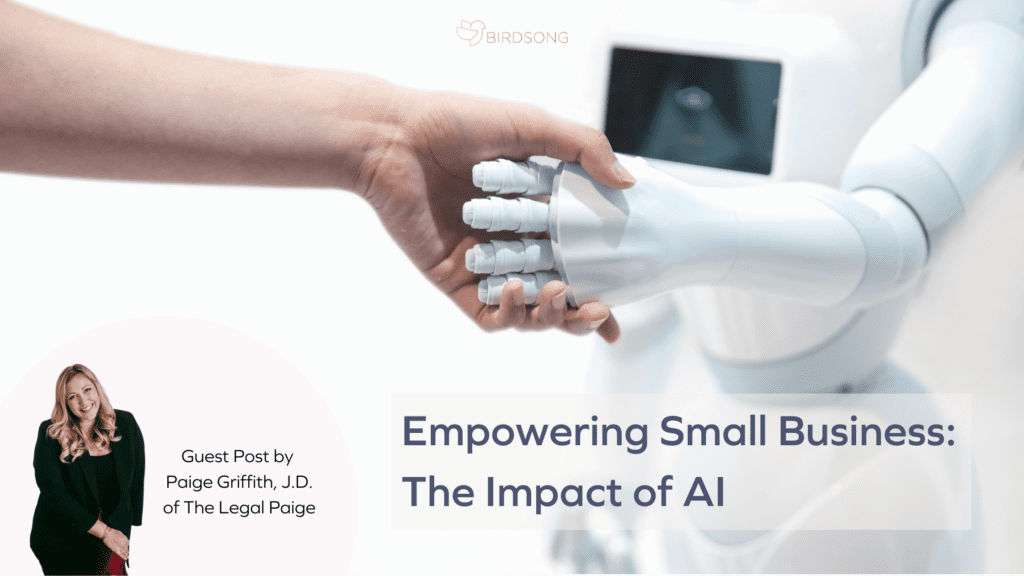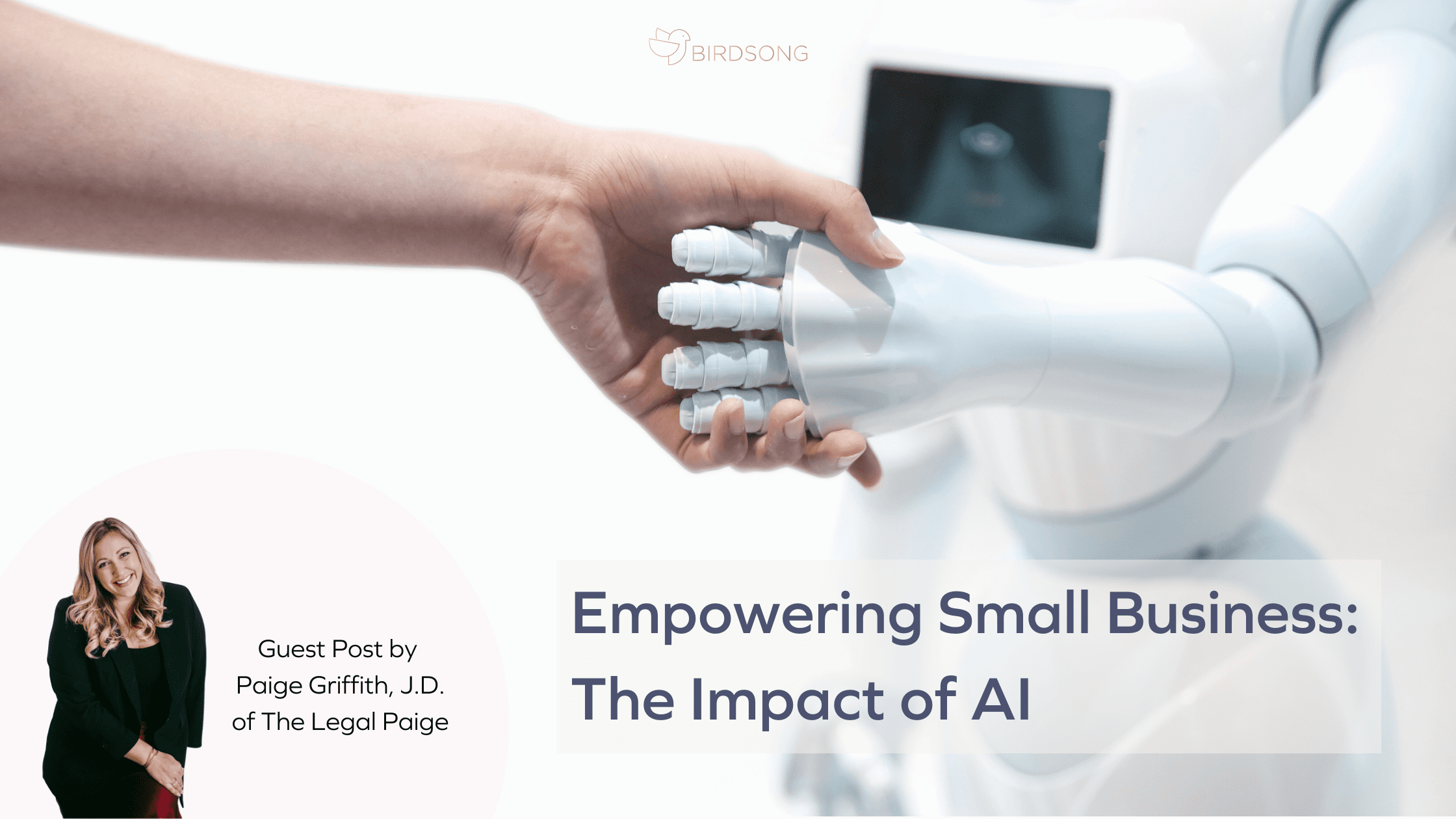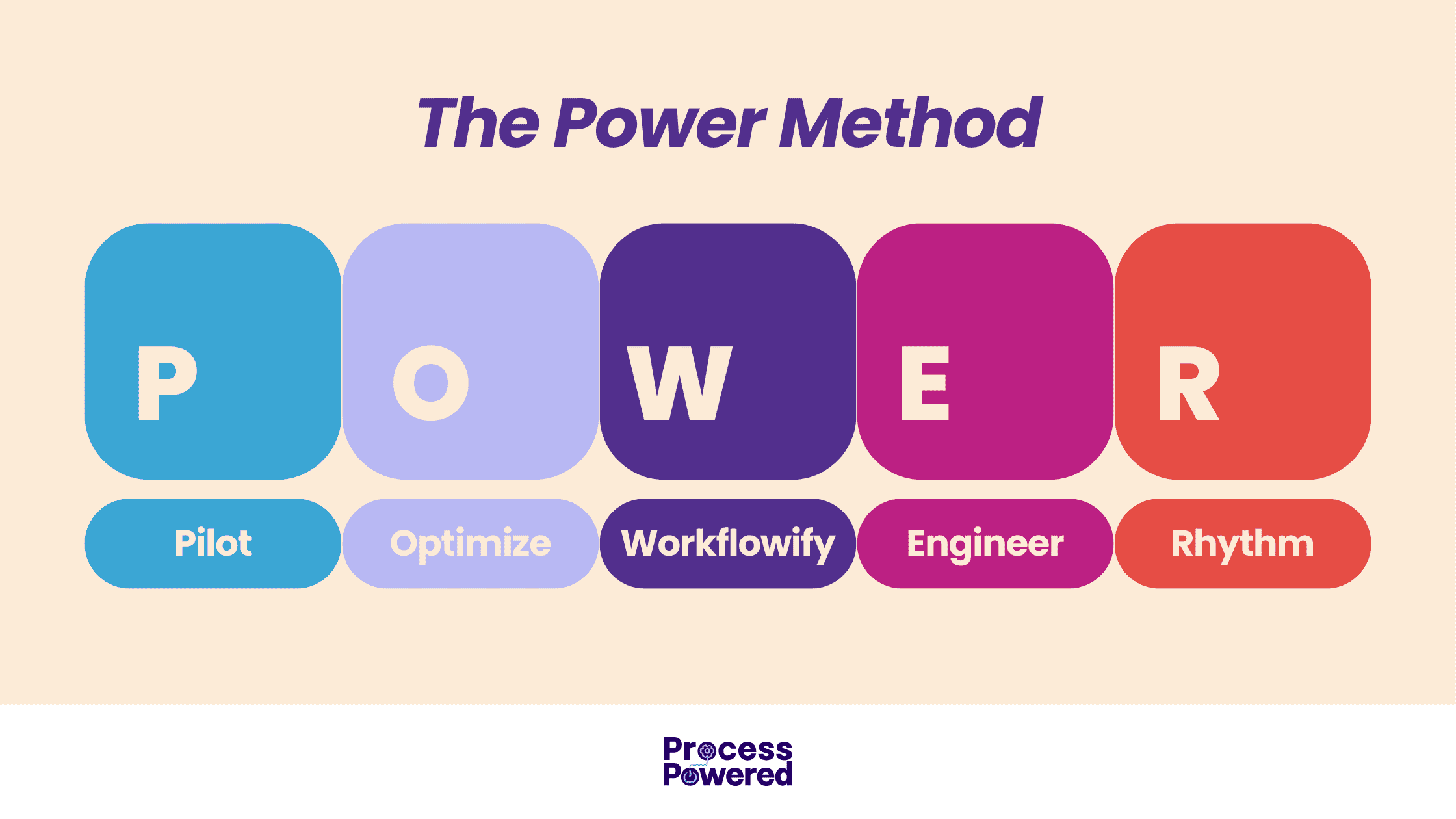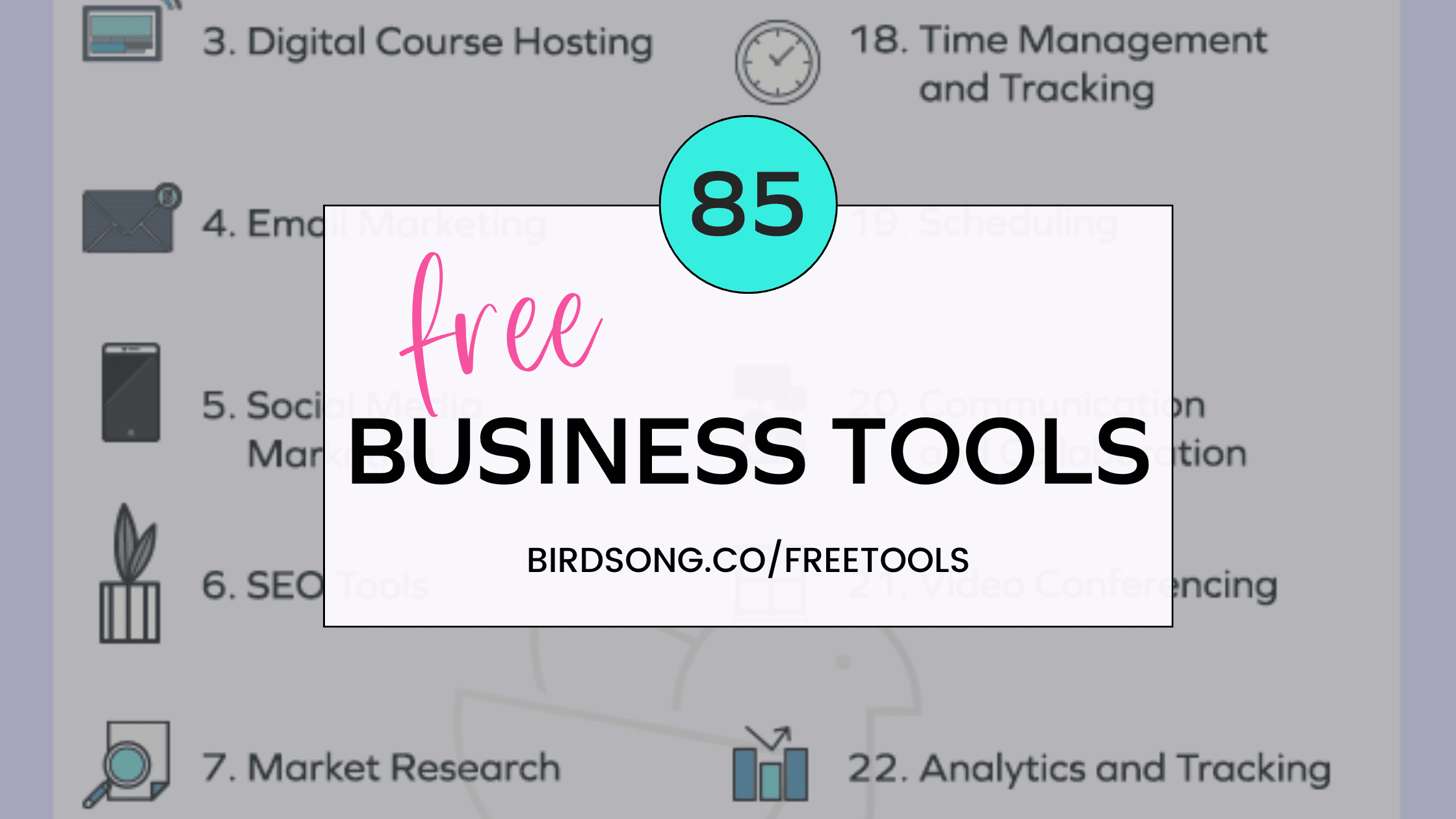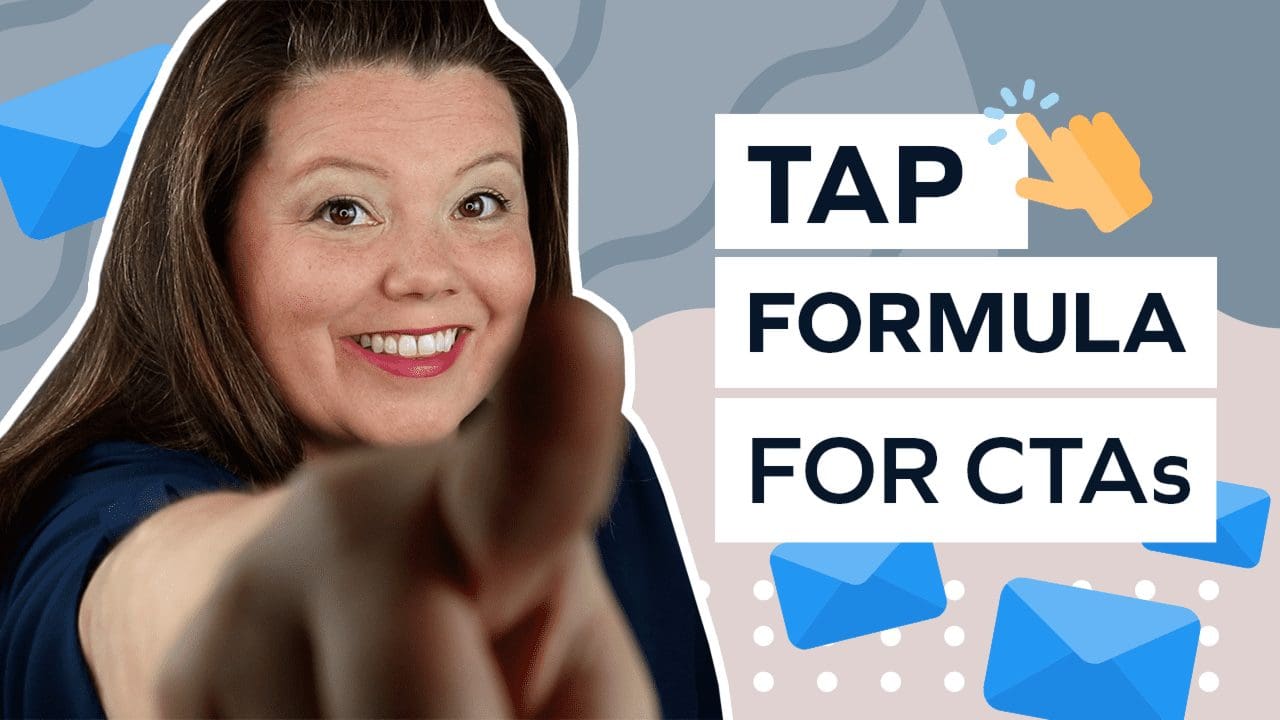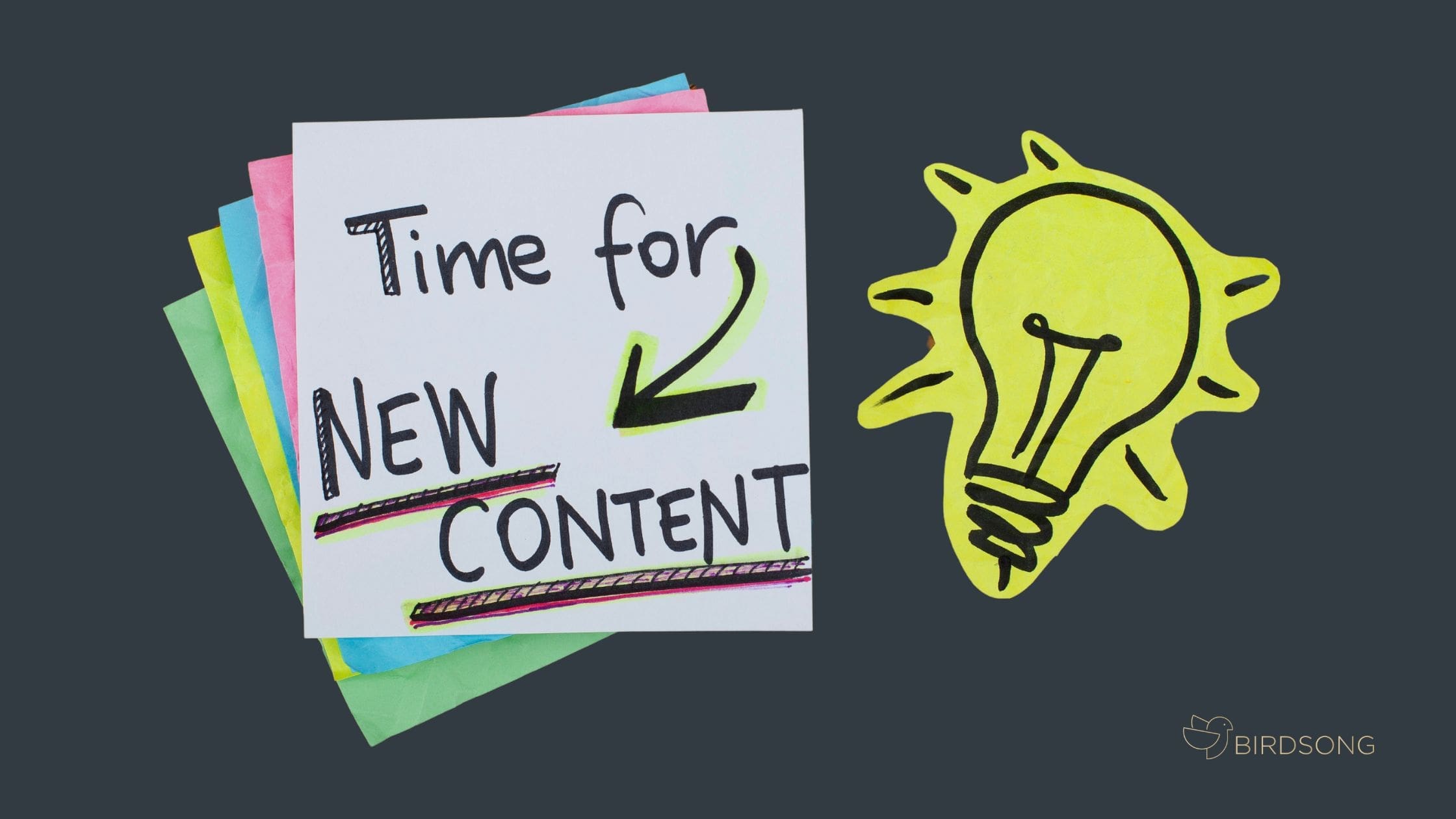Last Updated on February 9, 2025 by Monica Snyder
Artificial Intelligence (AI) is gaining significant attention among business owners. AI, essentially computer programs designed to mimic human intelligence, is increasingly being used for generating textual, visual, and audio content. Use of AI technology for small business owners can be very beneficial and help you produce content in a fraction of the time. But, there are legal considerations you need to be aware of so you don’t get into trouble with clients or users on your website.
How Business Owners Can Use AI in Their Business
AI can benefit businesses by enhancing efficiency and reducing costs, particularly for tasks like copywriting and graphic design. However, AI should supplement human creativity, not replace it entirely. Overreliance on AI may result in generic, repetitive content lacking a brand’s authenticity and uniqueness.
Suppose you’re launching a new business and require assistance with copywriting a few paragraphs on your new website. AI proves invaluable for coming up with this. All you need to do is input a few things into the generative platform and it can whip out two paragraphs for you in no time. AI is also super helpful with content ideation, including captions, blog titles and outlines, calls to action, hooks, and brief pitches. Utilizing AI can serve as a cost-effective solution for businesses unable to afford dedicated copywriters, SEO experts, or social media managers. However, it's important to note that while AI can be a valuable resource, it does not replace the expertise of a human industry professional. And that’s where the legal comes in.
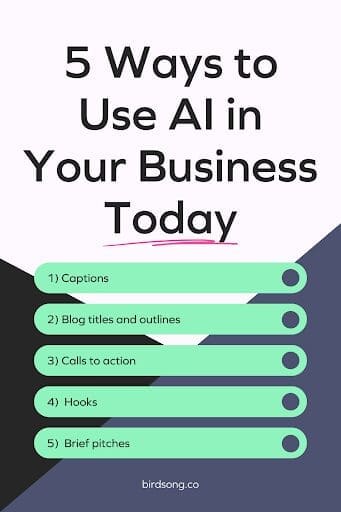
Legal Considerations for AI-generated Content
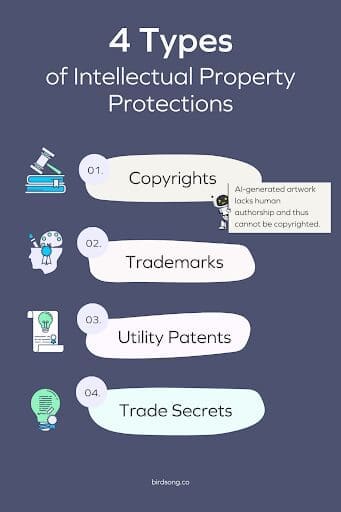
Although AI can be a beneficial tool for small business owners, it's still a new tool that the legal system has not fully addressed. Questions about ownership, copyright, and licensing are still getting worked out by the legal system and the U.S. Copyright Office. The United States Copyright Office has started addressing these issues, clarifying that AI-generated artwork lacks human authorship and thus cannot be copyrighted. Similarly, the copyrightability of AI-edited text depends on the extent of human involvement.
Recently, the Copyright Office launched the “Artificial Intelligence Initiative,” outlining guidelines for disclosing AI contributions in copyright applications. The Office explains that while AI-generated content may be copyrightable, it must predominantly reflect human creativity. The Legal Paige also expects the court system to enact new law and give us more interpretation into the copyright aspects of AI-generated works in the coming years. It just takes time for lawsuits to go through courts and for opinions to be rendered.
The Key is To Disclaim Your Use of AI-Generated Content to Your Clients and Website Users
When you use AI toward any commercial endeavor, you absolutely should let consumers and the public know that AI contributed! Otherwise, you can be at risk of a software company claiming copyright infringement or consumers claiming misrepresentation. This type of disclaimer and notice requirement is also coming straight from the highest government offices, for example the U.S. Copyright Office explains this here. So, don’t forget this step when utilizing AI. The best way to disclaim your use of AI for website content is by including an AI-disclaimer clause within your website terms and conditions. And, the same goes for client use, where you’d want to disclaim via a clause in your client contract.
Ensuring your business is legally legit and prepared for various scenarios requires proactive measures. Consider obtaining an AI legal disclaimer to help protect your business when utilizing all the new AI platforms for your website and client needs.
Monica here, and first I want to say thanks to Paige for writing this awesome article! I’ve purchased many of her templates for use in my own business, including her AI clauses. They are so easy to use and they are written so clearly that everyone I’ve shown the templates to understands them.
I highly, highly recommend them. So, if your business isn’t totally legal, now is the time to grab the contract(s) you need!

